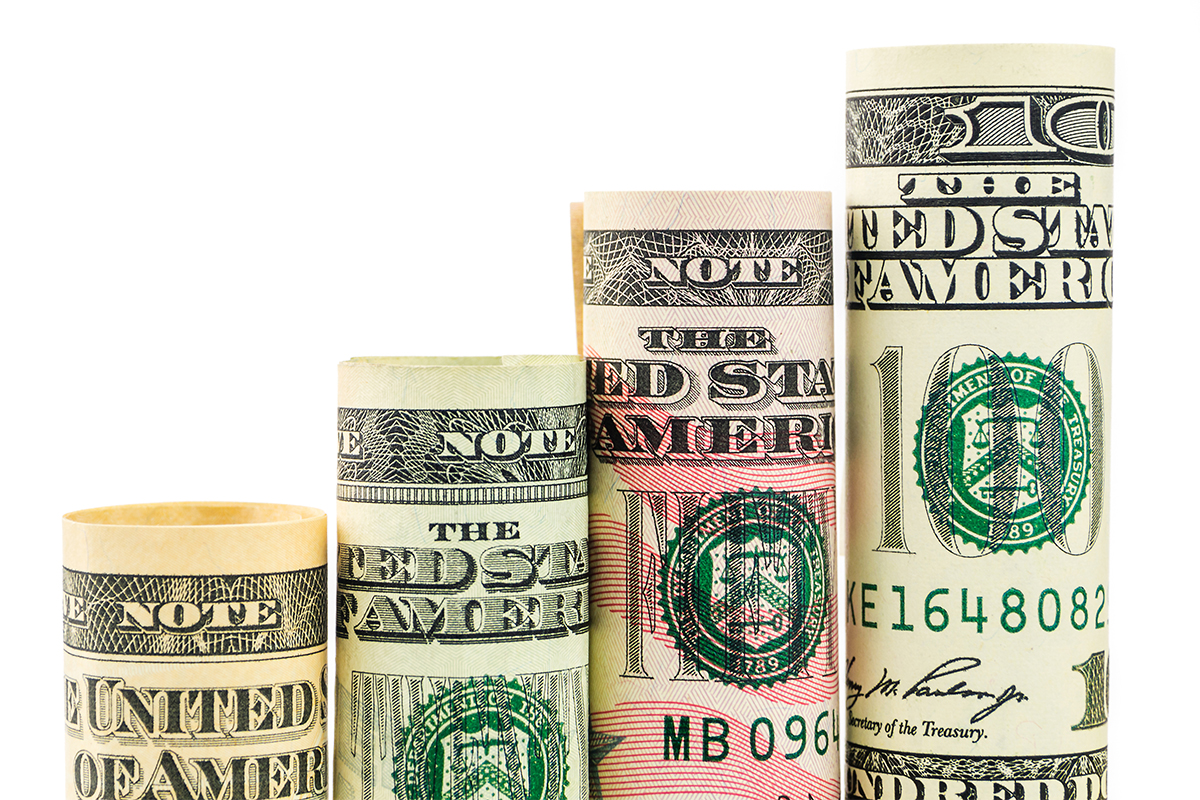Uncertainty in public markets continues to cause unrest among global and domestic investors, with inflation being one of the main economic theories circulating amongst financial analysts about the cause of the next market crash.
What exactly is inflation? The economic definition of inflation is “a general increase in prices and fall in the purchasing value of money.” In reality, this translates to ordinary expenses, like groceries or gas, costing more — and, in some instances, much more than one is accustomed — without a relative increase in work related income.
Investing in “hard assets” such as precious metals (gold), natural resources (oil), and even art have historically been protective investment vehicles to both protect against inflation, and in some instances, turn a future profit. When an economic shift happens, investors seek to add alternative investments like commercial real estate to their traditional public stock, bond and cash portfolios.

In every investment, there is always risk. When considering alternatives, it is even more important to find the right managers to work with—those who have a strong track record, and a system in place to manage risks in a less regulated environment. As a general rule, alternative investments are typically held in the portfolios of institutional and high net worth investors.
Investors seek alternatives because, when done right, they offer other attractive benefits in a turbulent economy. These investments are said to be “non-correlated” to the public markets, which essentially means that their value changes according to variables not directly related to the public markets.
As investors consider their options, they should remember that that any income generated from bonds or fixed income instruments factor into the inflation rate to determine “real return” or “real interest rate.” Essentially, this is the gross return.
When you factor this into an environment at high risk for inflation, investments that can generate higher yield are more attractive if they can be done in a lower risk environment. When sourcing investments—whether in residential or commercial real estate—professionals always have the competitive advantage in finding opportunities that will generate strong risk-adjusted yield.
Historically, having an insulated alternative portfolio in a time of inflation has helped create a more balanced portfolio to counteract inflation.
Although all “hard asset” options can be effective (and have been in the past) there is one critical element that, when coupled with hard assets, can have an exponential effect in not only defending against inflation, but generating more real-time profit: income.
Real estate, particularly income-producing real estate, is a popular choice because rising prices increase the resale value of the of property. In addition, certain types of real estate can be used to generate income, specifically from rent paid by tenants. There are many options for investors to seek current income in real estate, but the questions that investors need to ask themselves are: “How much risk am I willing to take?” And then, “How much time and energy do I have to devote to these investments?”
Residential Versus Commercial Real Estate
Many novice investors elect to buy residential real estate and rent it out to generate income. On paper, this seems like a very attractive opportunity, but upon closer analysis, the risk may not outweigh the reward.
To begin with, real estate investing is a specialized profession that requires specialized knowledge and hard work. There are many steps that must be taken in a particular way before purchasing a rental property. This includes sourcing the property, conducting due diligence, budgeting for repairs, marketing the property to find a tenant, ensuring the tenant has the financial viability to lease the property, and a slew of other managerial tasks to maintain the property. On top of that, one must manage the financial risks associated with purchasing the property, not to mention personally guaranteeing a mortgage. And even if that laundry list of tasks is completed, one the biggest risk factors is that the property is either 100 percent occupied or 0 percent occupied.
What does that mean? The vast majority of residential properties are single-tenant assets, so if they decide to vacate the property early, no income is being generated, and the investment quickly turns into a massive liability. To protect against the all-or-nothing risk profile, owning multiple houses to create a portfolio can help diversity the risk—which also incrementally increases the work and the capital outlay for purchase and upkeep. In effect, this is not a passive investment like investing in the stock market; real estate requires active participation.
On the other hand, commercial real estate properties are generally multi-tenant, so the risk of default is spread out considerably and not reliant on a single tenant for rental income. In some cases, there are single-tenant commercial properties, but the solvency of the tenant is based on the business itself.
One of the stark differences with investing in commercial versus residential is that the vast majority of the opportunities available to investors are done by professionals that specialize in real estate investing. This does not mean that there is not risk; there is always risk. Compare this to the large portion of rental property owners who are using their own, non-professional skills to determine which properties to purchase for investment, and you can see the increased risk of loss immediately.
Barring any undisclosed risks, the diligence, management, and operations of commercial real estate should be handled by a professional company, which allows the investor to receive passive income, allowing their money to work for them instead of signing up for another job.
Ari Rastegar is the founder and chief executive officer of Rastegar Equity Partners.





